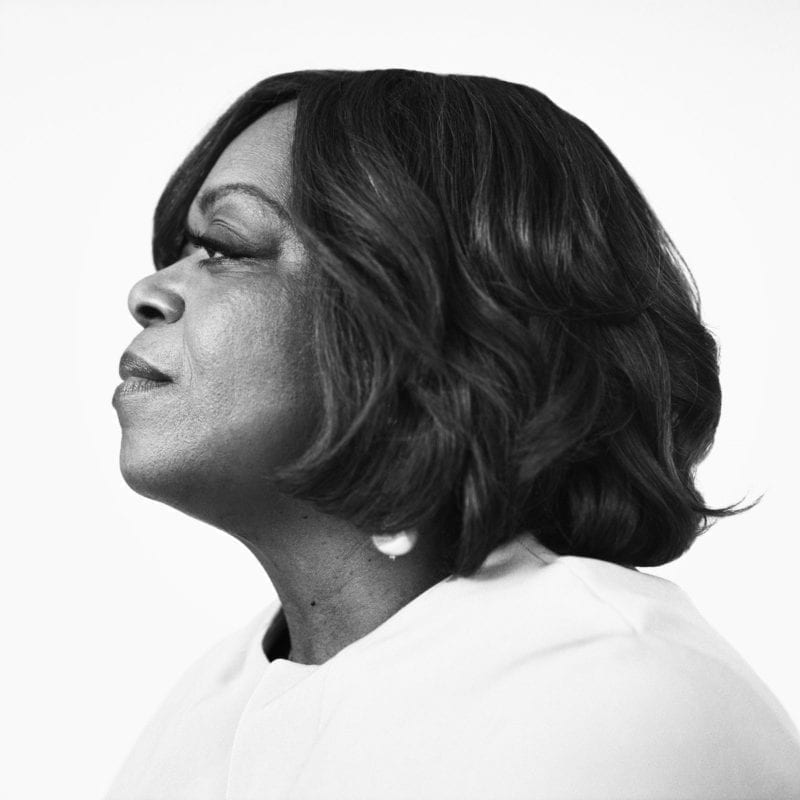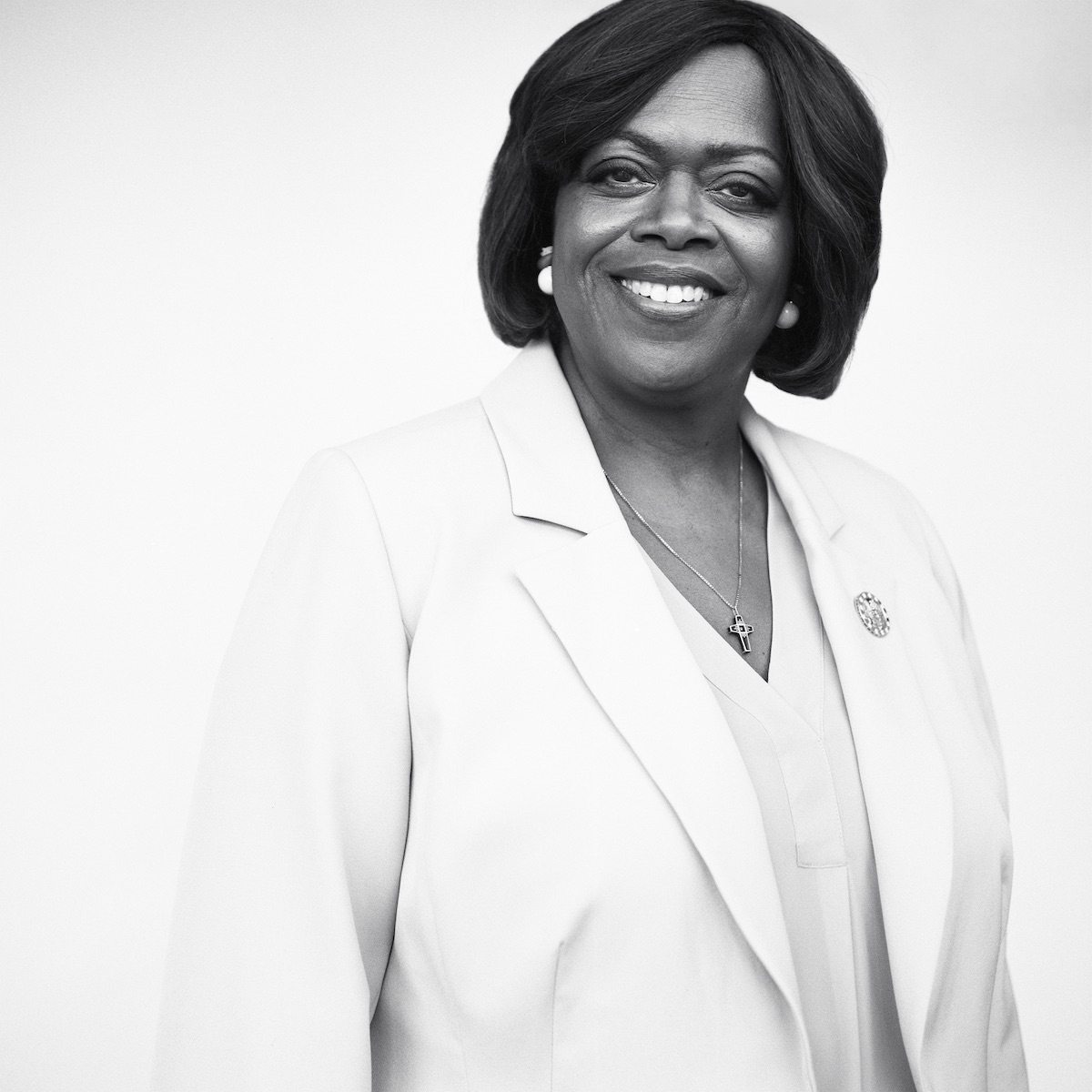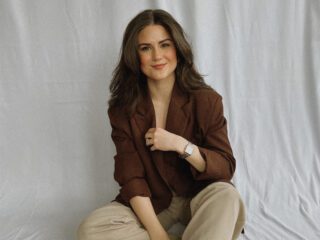In light of Black History Month, we’re highlighting Ambassador Suzan Johnson Cook, who for many years was known as the “mother of Harlem,” among many other titles across politics, religion and education.
Her influence has been one of intersectional advancement and key to her work with Presidents Obama and Clinton, at Harvard and in the American Presbyterian church.
We interviewed her last summer for Darling Issue 20, and it is still one of our favorite conversations in print to date.
Suzan Johnson Cook: On Business, Religion, Politics & More
Interview by Teresa Miller Archer
“My history walks with me.”
These were the words that stuck after speaking with the presidential advisor, pastor, advocate and author who is Ambassador Suzan Johnson Cook (known as “Ambassador Sujay” to many) – and what a history it has been.
She spent two years as the Ambassador-at-Large for International Religious Freedom under President Obama, worked as a policy advisor to President Bill Clinton and is an alumna and former Associate Dean at Harvard University.
Since her time in the political sphere, Ambassador Sujay has been reaching out to women, specifically women of color, bringing more conversation, more clarity and more unity, which we so desperately need.
We took a little time to listen to the woman who not only was a close friend of Coretta Scott King (Martin Luther King Jr.’s widow) but is now a friend and advocate of so many more.
Teresa Miller Archer: You’re doing a lot of motivational speaking and networking with specifically women – how did you end up focusing in on that arena?
Ambassador Suzan Johnson Cook: I’ve been a multitasker my entire life. I’m one person, but I know the different audiences that I want to connect with. I also surround myself with what I call my “destiny circle,” women who understand my flow and my vibe, and we celebrate each other and honor the traditions of each of us.
This Monday, I’m hosting an event I have every other month within [Washington] D.C. and New York called the “pro-voice movement” for women. The religious world that I was in as an ambassador says you either have to be pro-life or pro-choice. My thing is that I’m pro voice.
A woman should have a voice in every aspect of her life, and it shouldn’t be limited to two choices.
TMA: What are your goals for those monthly gatherings?
SJC: Every gathering includes my three Cs; connections, conversations and celebrations. When I came back from Washington, there had been such a rift, particularly between Blacks and Latinos, centered around some political elections that had happened.
I was like, “We have dated each other. We live across from each other. We’re next door neighbors, and then, we don’t speak professionally.”
So, it started with Black and Latina women coming together just for conversations, to just kind of say “where can we find common ground?” And then, of course, women of color in general were just like, “We all need to have a chance to sit down together.”
My start in these also came at the tail end of Sheryl Sandberg saying “lean in” – and my thing was “we can’t lean in until we get in.” Myself and some others of my friends have had success, but we’ve also had access – and that’s something a lot of women of color don’t have.
So each pro-voice gathering has conversations and presentations, and then there’s what I call “who’s in the room?”— everyone has a chance to kind of just say whatever they need to say, one thing they want to celebrate and one thing they want prayer for.
This is a fun time: it’s a time of faith, it’s a time of fortitude, so that when we leave these gatherings, we’re ready to go on to the next part of the journey. It’s women empowering women and women celebrating women.
…[M]y thing was “we can’t lean in until we get in.”
TMA: What role do you then see women who don’t align as “women of color” having in furthering equality in America?
SJC: I’d tell you to have authentic friendships with many different women, but I think also I’d underline providing access for them, because there are times that you have really talented women of color, and the doors to them are shut.
My friends who are European or Caucasian can open certain doors or make introductions that others may not be able to do. Now there are women across the aisles and across the races and ethnicities who are positioned and poised to help other women.
I don’t have to try and be a representative. I am Black, and I am a woman. So, every time I walk in the room, you know, that’s clear – my history walks with me.
I had to talk with Tea Party Conservatives and Evangelicals, as well as my own faith tradition and others, in my role as Religious Ambassador, and we also had to recognize people who were not religious at all: atheists and agnostics.
So, my role was to be a bridge-builder and to be able to understand how you have to cross the aisle in order to get things done.
One of my predecessors said to me that “you get two or three deliverables” in a stint in office. The deliverables were that I got people of color to the table; I got women to the table; and I got faith leaders to the table. All of that was the compilation of who I am, and it’s what I left at the table.
I don’t have to try and be a representative. I am Black, and I am a woman. So, every time I walk in the room, you know, that’s clear – my history walks with me.
TMA: Interesting perspective. It’s almost like you can already see your own legacy.
SJC: Yeah, you know, I have one more chapter though, but I want this next chapter to be a continuation of the legacy, where I help shape the generation of leaders who will follow me. So, I’ve been sowing a lot of seeds; so I’ve been waiting for some trees to blossom.
TMA: You’ve been close to some truly influential people, including Coretta Scott King and, obviously, President Obama. What defining attributes do you identify in great women and men?
SJC: Mrs. King called me her “other daughter” and invited me in to her hospital as she was dying. Her children were Yolanda, Martin, Dexter and Bernice, and she had a message for each of them that she wanted me to convey. She exemplified consistency, “stick-to it”-ness, faith, fortitude, family and the balance of having fun. I was very close to Mrs. King and others like the Clintons and the Obamas.
Going to my kids’ games, making sure that I was there for my children, were priorities that I attribute to each of those people.
Someone asked one of his staff recently about their time with President Obama, and he said, “You know, when it was six o’clock, no matter what we were doing, he’d say, ‘I’m going to have dinner with my girls and Michelle.’” It just confirms and affirms those of us who [have] made similar decisions.
TMA: Who is one person you wish more people knew about, whom you would say is an “unsung hero?”
SJC: There are two women named Dr. Thelma Davidson Adair (in NY) and Mrs. Corrine Cannon (in Kannapolis, North Carolina), [both] 96 years old. They lived through, you know, nine-and-a-half decades, so they’ve seen it all, and they, along with my late mother, Dorothy Johnson, were trailblazers in the Presbyterian Church, as elders who really paved the way for Black Presbyterianism.
Dr. Adair, she’s like the village mother of Harlem, but she’s specifically my village mother, like Maya Angelou was to Oprah.
I’d sit at her feet whenever I’d get the chance. She didn’t get that kind of “15 minutes of fame” that some of us have had, but on a local level, she did.
TMA: Awesome. You’ve written quite a few books, and now, you’re speaking to women about something called the “6 S Words.” Can you just tell me a little about that?
SJC: Well, I ran up for Congress in 2016 – the election was June 28, 2016, so almost a year ago – and I was the only woman in the race. When I finished the election and I did not win, I was exhausted. I was fried; I was burnt out, so I had the gift of a sabbatical, which is the first “S” I talk about.
In the Christian Scriptures, there’s a word – “Selah” – used a lot in the Psalms, and it’s a word to not be spoken, but it’s a word that means “pause, rest, reflect from.” David was a psalmist and a harpist, so it meant “stop singing and stop playing your harp, and just pause.”
I was kind of driven to a Selah; I had nothing left, financially, emotionally or physically. I was just really tired, and I had the gift of time. I began to write everything beginning with an S, and so, the six Ss are the ones that kind of popped out. But everything that I did, it was 70 days – I wrote “70 days and 70 Ways to Get Your Soul Revived.” I became kind of the soul doctor.
The series grew out of, “what does it take to keep you whole? To make you whole?”
I was a Chaplain for 21 years with the NYPD, and I was on the front lines of 9/11, and for 60 days, we dealt with nothing but death and tragedy. Because almost everything in NY was shut down, I went to comedy clubs, and I actually took a comedy course. I just found I needed to laugh to keep from crying, and so, “Silliness” is one of my Ss. Another is to “Scream” – scream if you have to, when no one’s watching. Get that pent-up frustration out without hitting anyone.
Obviously, there’s more, but I just wrote down a list of Ss – things that I thought would be helpful to women, to take the time, and you could pick out the Ss that work for you, but the bottom line is to not neglect your soul.
So, I kind of say that Dr. Phil is the mind doctor, and doctor Oz is the body doctor, and I’m like the soul doctor – the sister doctor. [laughs]
TMA: If you could convince women of one thing, what would it be?
SJC: That we have all the power we need, that we are wonderfully made, and we need to go for it.
Like this? Become a Darling subscriber HERE to immediately gain access to all of our digital versions, plus get our latest issue delivered right to your doorstep.
Images via Ryan Page












